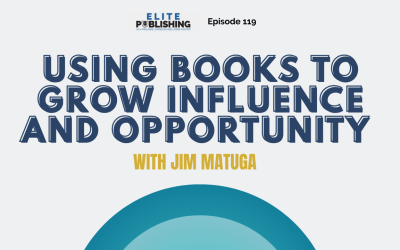Should You Write a Book?
 IMAGE: Getty Images
IMAGE: Getty ImagesWhen corporate philanthropy consultant Susan Hyatt wrote a book, Strategy for Good: Business Giving Strategies for the 21st Century, it went on to win four publishing awards and got testimonials from top execs at Pfizer, Timberland, and Starbucks. Most important, it caught the attention of potential clients. “It does open doors,” she says. “The credibility is big. If people know you’ve written a book, they do take notice. It’s attracted new business for me, for sure.” Yet it sold just 1,000 copies. Books by or about entrepreneurs rarely sell well (unless they include the name Musk, Gates, Jobs, or Buffett), so if you’re considering writing a book, know that you most likely won’t make a dime. In fact, if you self-publish instead of working through a traditional publisher, you could spend tens of thousands of dollars. That’s why you should treat your book like a marketing investment that you can use to boost your company’s bottom line.
Say something unique and valuable
To maximize the marketing power of your new book, you’ll need to focus it on your unique area of expertise. Once you identify what that is, you need to make sure people care. Start by asking your clients what they’re looking for in a book about the topic, suggests publishing consultant Shel Horowitz, the author of 10 books. For example, Jim Miller, an accountant and co-founder of The Sweet Box, which makes dessert-baking kits, developed his own budgeting system. His friends kept using it. It occurred to him that if they were interested in it, others might be too. His book,Budgeting Doesn’t Have to Suck, was published in 2013 and has since sold just 700 copies, but it has helped Miller build his brand and position himself as a personal finance expert and public speaker.
Get help from publishing experts
If you’re going to use your book as a calling card, it needs to be as well-written and professional-looking as possible. That’s where a ghostwriter comes in. Soon-to-be self-published author Tom Gimbel, founder and CEO of the Chicago-based staffing and recruiting firm LaSalle Network, got a ghostwriter as part of a package (which also included editing, cover design, and printing) offered for $25,000 to $35,000 byAdvantage Media Group. Independently, ghostwriters charge $15,000 or more for a book-length project. If you’re self-publishing, an editor ($40 to $150 per hour) and graphic designer ($230 to $4,000 per cover) are essential, says Sandra Poirier Smith of Smith Publicity. “Hire a designer who knows the craft and the trends in covers,” she says.
Your book, yourself
Once the hard work of publishing is done, focus on using your book launch to generate maximum exposure. Dorie Clark, branding expert and author of Stand Out: How to Find Your Breakthrough Idea and Build a Following Around It, drew attention to her book and to her business through an aggressive social media campaign coupled with direct email outreach. She expanded her opt-in email list by offering a freebie, a workbook based on Stand Out. She used the “salons” she’d organized for years with key influencers, including journalists, other authors, and educators, to generate attention beyond her circle of contacts. She reached out personally to other influencers using old-fashioned mail-merge letters. She also used the book launch as a way to secure speaking engagements at universities, professional organizations, and South by Southwest. “A book solidifies your expertise and credentials like nothing else,” says Clark.





0 Comments